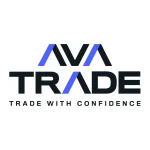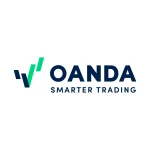Use filters to find your best broker
An Overview of Online Trading in Australia
Online trading in Australia is legal and available for any individual over 18 years old. Trading in this region has come a long way, from traditional methods to online platforms with quality resources. Due to the easy access to trading resources, it’s now easier to explore the Australian financial space.
There are numerous asset classes to explore in Australia. These include forex, shares, commodities, cryptos, indices, bonds, mutual funds, and more. You can engage in this activity using various strategies, such as day trading, swing trading, scalping, and more.
You need a brokerage firm or platform to trade in Australia. Ensure the broker you select is licensed and regulated by the Australian Securities and Investment Commission (ASIC). It must also feature elements favourable to your needs. These include hosting your preferred instruments.
The best element about using a brokerage firm is that you have access to various trading methods. For instance, you can trade your preferred asset as CFDs or indices with the aim of earning profits in the long run. Trading in Australia also exposes you to leverage. It allows you to manage larger positions with a smaller capital. With leverage, you have the potential to earn massive profits. However, losses can also be magnified should a trade work against you.
Overall, trading in Australia is all about taking risks. This is because the financial market can be volatile and affect asset prices. Fortunately, you can maximise your potential by applying the best trading tips. Besides choosing a suitable broker or platform, learn how to start trading in Australia and choose the right assets. Plus, have a budget, and do not base your decisions on emotions. You can also apply risk management controls like stop-loss and take-profit orders.


How BrokerRaters Can Help
We offer the best support possible to ensure you make informed decisions and choices in Australia’s financial space. As BrokerRaters experts, we conduct our own research. It involves multiple broker tests and comparisons. We then share unbiased broker reviews and a comparison tool. We aim to ensure you compare brokers and platforms based on various elements. These include security, fees, asset availability, performance, support service, and more.
We also help you maneuver the financial landscape with our comprehensive educational guides. Whether you are a newbie or a professional, our content sheds light on everything trading/investing related. This is from basic trading tips to advanced strategies that have proven efficient in maximising user potential and profitability.
Besides sharing unbiased broker reviews and investing guides, we have our own “BrokerRaters Awards” page. It is specifically tailored to help you identify a platform based on specific categories. For instance, if you are looking for the best forex broker. In this case, we share the most outstanding options based on our hands-on experience.
Investing in Australia
Many individuals in Australia do not know how to differentiate between trading and investing. While they are similar in various ways, they differ when it comes to the duration of holding a position. In trading, you will manage short-term positions. They usually last for minutes, hours, days, or weeks. In contrast, investing involves long-term investments above one year.
There are various assets you can invest in. These include company stocks, cryptos, commodities, mutual funds, bonds, and ETFs. You simply need an ASIC-regulated broker supporting your preferred securities. Plus, it must allow you to explore the securities long-term. The main goal for investing in Australia is to generate good returns in the future once an asset’s value increases.
Like trading, online investing Australia doesn’t guarantee returns, as losses are inevitable. Therefore, take advantage of brokers’ market analysis tools to develop the best strategies. Plus, keep tracking your open positions to ensure everything works out as expected. Whether you are new or have been investing for a while, continuous learning is crucial. Remember, technology is advancing daily, and new trends are introduced in the market. You do not want to be left out.

Guide to Mobile Trading/Investing Platforms & Apps
Mobile trading is one of the reasons the Australian market has witnessed a remarkable transformation. With many individuals owning internet-powered smartphones and tablets. In this case, accessing the financial market has been made easy. Users can now download a broker’s app on their mobile devices and manage their positions anywhere, anytime.
Like web platforms, mobile trading apps are user-friendly. Additionally, they host quality resources for skills development and market analysis. The apps offer more flexibility but ensure you make the right choice for an increased success potential. It is advisable to alternate between web and mobile trading. This is because desktops have larger screens, which may add to your excitement.
How Do We Select the Best Trading Platforms
At BrokerRaters, we incorporate various elements in our research. This is so we can make the best broker recommendations. You can also emulate our tips below when considering a broker/platform in Australia.
Safety: This should be a priority when considering a trading platform in Australia. We ensure a platform is licensed and regulated by ASIC for the maximum safety of our readers. You are guaranteed favourable trading conditions. Moreover, your funds are secured in segregated accounts. We also consider brokers that are highly encrypted. They also offer additional safety measures like passwords and biometrics.
Payment Methods: We choose platforms you can easily transact on. This will help our readers avoid the hassles of currency exchanges or delayed deposits and withdrawals. From our analysis, the best trading platforms in Australia support multiple payment methods. These include credit/debit cards, e-wallets, or bank transfers.
User Recommendations: We also review user opinions on their experiences with various trading platforms in Australia. This helps us understand a platform’s strengths and weaknesses from a user perspective. For honest reviews and opinions, go to Google Play, the App Store, and Trustpilot.
Charges: To ensure our readers get the best, we analyze various platforms’ charges and share their fee structures. Some of the trading and non-trading charges we consider include commissions/spreads. We also look into inactivity fees, minimum deposit requirements, overnight fees, and more.
Support Service: We contact various platforms’ support services to gauge their response rate and availability. We prioritize those that are prompt and attend to us professionally. Plus, we check on their availability to ensure they fit with all traders’ schedules.
Platform Performance: The best platform must be user-friendly and customisable for every user. We never overlook this element, and it makes it easier for newbies and professional traders to make suitable choices. Plus, we check the availability of learning and market research materials. We prioritize platforms with quality and plenty of offerings.
Asset Offerings: Lastly, we analyze the asset offerings on various trading platforms in Australia. Whether you want to trade forex, cryptos, commodities, indices, or more. In this case, we ensure we recommend what best suits your needs.
Australian Regulations
Australia has taken stringent measures to ensure its online trading and investing space is safe from imposters and money laundering activities. The region’s financial market is overseen by ASIC. This authority strives to maintain the integrity of the financial landscape. This is while protecting traders and investors from unscrupulous individuals.
For instance, ASIC requires all brokers it regulates to secure their clients’ funds in segregated accounts. This way, not even the brokers themselves will access the money, even in the event of bankruptcy. Plus, it requires the brokers to advise clients accordingly on the risks of trading, especially CFD instruments. This is so they can strategically approach the activity.
Overall, trading with an ASIC-regulated broker is safe, and you enjoy the best tools. Still, there are risks of losing money and conducting thorough market research before trading is crucial.
FAQs
Absolutely. Trading in Australia is legal as long as you are over 18 and trade with an ASIC-regulated broker. With such brokers, your funds are secured in segregated accounts, and you get investor protection. We share various ASIC-regulated brokers on this website to choose from.
Yes. Like trading, investing in Australia is legal. You simply need to be of legal age (18+ years) and invest with an ASIC-regulated broker for maximum experience. Various assets are offered by our top investing brokers in Australia. These include stocks, cryptos, mutual funds, bonds, and more.
To confirm the legitimacy of an online broker or app in Australia, ensure it is overseen by ASIC, which is Australia’s financial market regulator. Plus, check user testimonials on Google Play, the App Store, and Trustpilot. A broker or app with numerous positive reviews shows they are trustworthy and reliable.
Absolutely. The advancing technology has made it easier for individuals to trade and invest using their smartphones or tablets. By downloading a broker’s trading or investing app on your mobile device, you get the same experience the web or desktop platforms offer. Plus, mobile devices offer more flexibility as you can easily manage your activities on the go. Simply ensure they are connected to a fast-performing internet to maximize on the arising potentially profitable opportunities.
No. Sadly, it is impossible to invest in Australia. This is because you will be required to participate in identity verification during the account sign-up process, which requires sharing personal documents. These include your government-issued ID card or driver’s licence, which are usually offered to persons over 18 years. The good news is that you can have your parent or guardian invest on your behalf or opt for a minor trust account.













